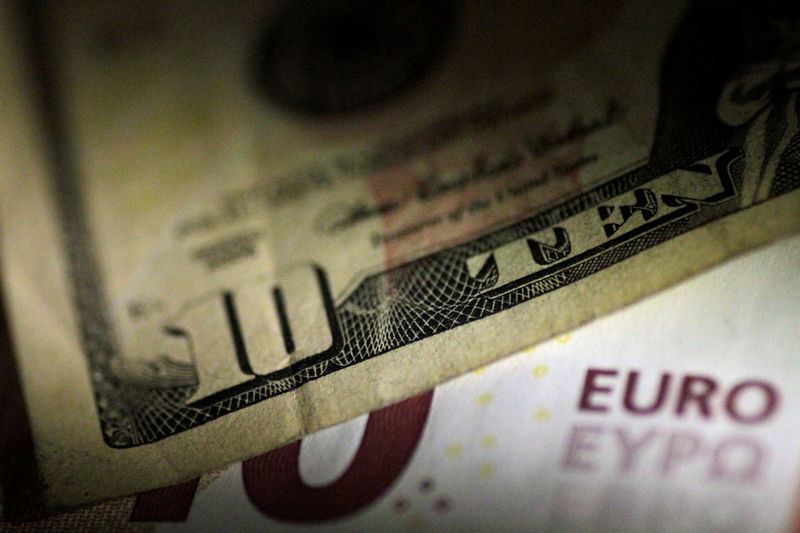By Francesco Guarascio
BRUSSELS (Reuters) - The European Commission published on Wednesday non-binding proposals to boost the role of the euro in international payments and its use as a reserve currency to challenge the dominance of the dollar.
The move follows the decision by the United States to withdraw from an agreement with Iran on its nuclear program. That has forced many European companies to stop trading with Iran to avoid U.S. sanctions.
The European Commission called on companies and states to increase their use of the euro in energy contracts. It said it would study possible measures to promote the European Union currency in financial and commodity markets.
"The decision to use a currency is ultimately made by market participants," the Commission acknowledged. The most effective way to widen the euro's international role was to overhaul the 19-country currency union and adopt financial reforms that have been blocked for years by conflicting national interests.
In the 20 years since its adoption, the euro's international role reached its peak at the beginning of the last decade. Its use dropped during the 2007-08 financial crisis.
The euro has not recovered since, and the dollar remains the currency most used in the world. Sixty percent of sovereign debt issuance and global foreign exchange reserves are in dollars. The euro is the second global currency, but its share of each market is just 20 percent.
The Commission admitted the dollar dominance was due to higher liquidity, lower transaction costs and its use as a benchmark in commodities and derivatives markets - prerogatives that can hardly be challenged in the short term.
But it argued that a stronger euro would be positive not only for Europe but also for the wider world, which "would help improve the resilience of the international financial system."
"More than promotion, you need reforms, stability and convincing investors," a senior central banker said, airing widespread doubts at the European Central Bank, the body in charge of the euro, over the Commission plan.
However, recent trade conflicts and the use of the dollar as an instrument to force sanctions on Iran have raised concern in other countries about the dollar. That could contribute to a stronger role of the euro, EU officials admit.
The Commission pushed for strengthening the euro's role in international payments, where it holds a global share similar to the dollar, more than 35 percent.
The EU is the world's largest energy importer with an average import bill of 300 billion euros ($340 billion), the Commission said, urging EU states to switch to a default use of the euro in future energy international agreements.
It said it would also consider moves to increase the use of the euro by aircraft manufacturers, such as France-based Airbus, and in commodities markets.
In the financial sector, the EU executive said it could propose extending the scope of derivative contracts that have to go through clearing houses in a bid to expand the market in euro-denominated financial products.
It said it would also explore measures to facilitate an ECB plan for a European instant payment system, which could challenge the dominance of U.S. payment cards and the emerging financial role of U.S. digital giants in payment services.
The plan was proposed by the ECB last week, but so far only eight mostly medium- or small-sized banks from Spain, Germany and France have signed up.
